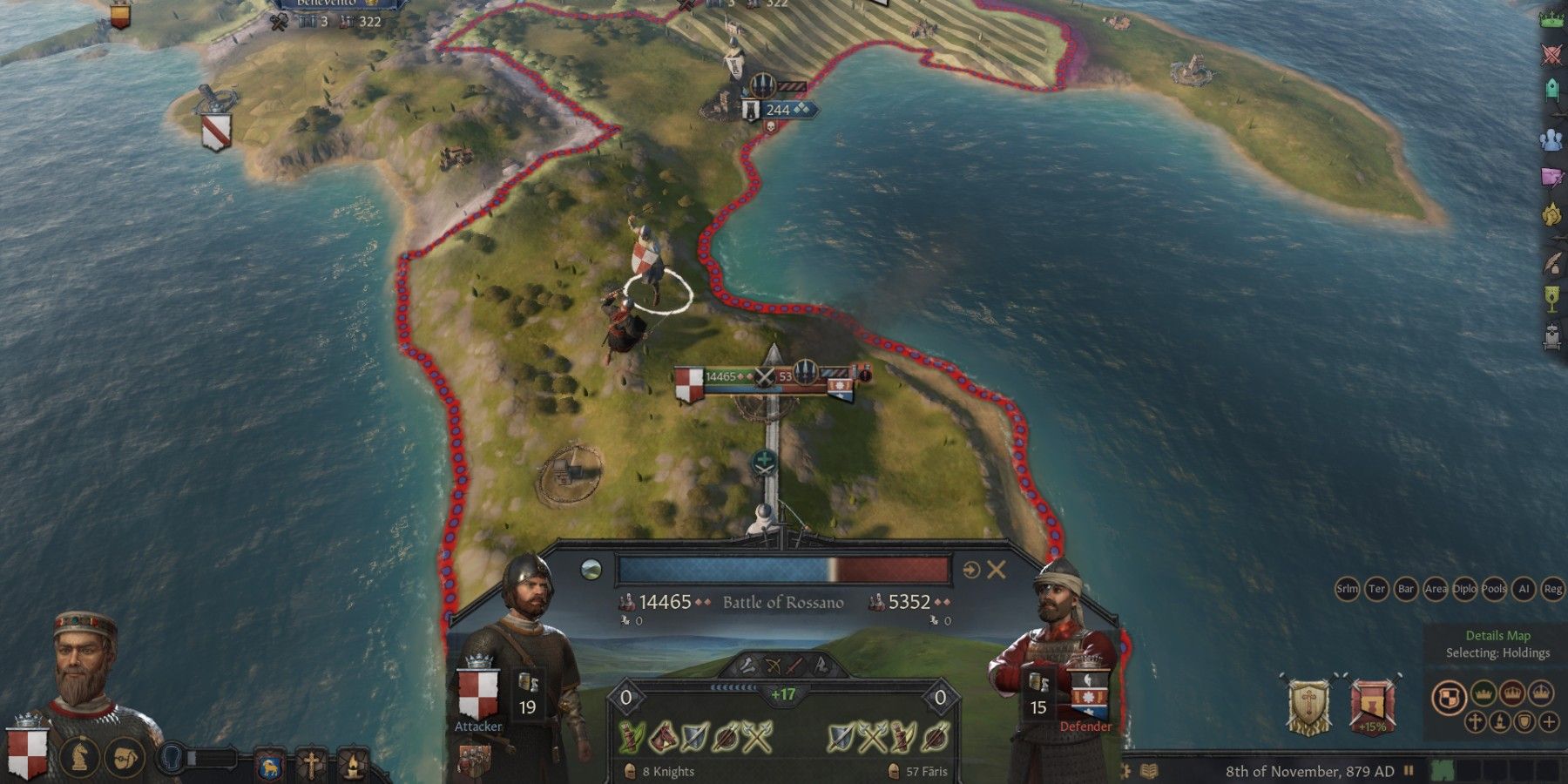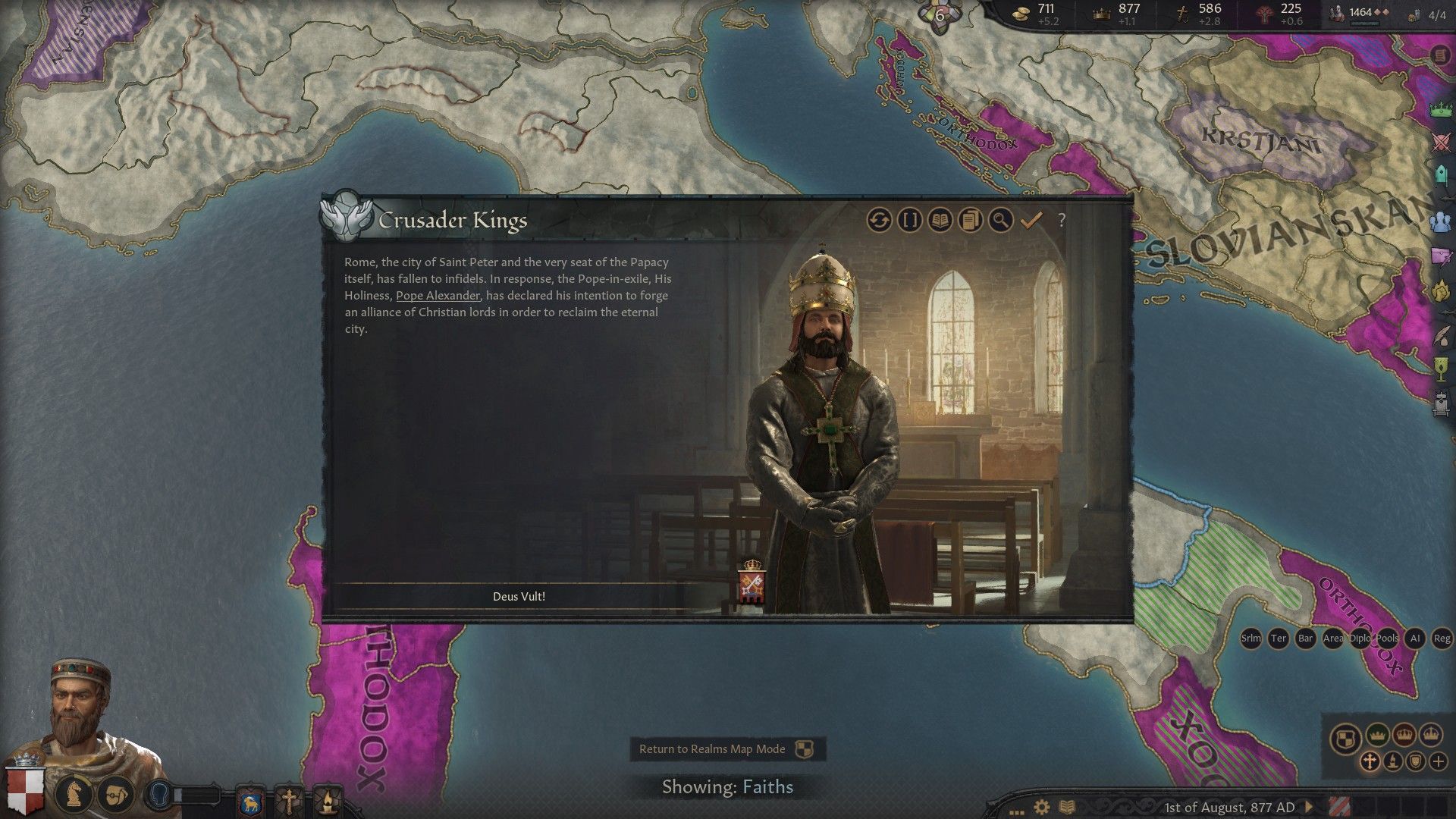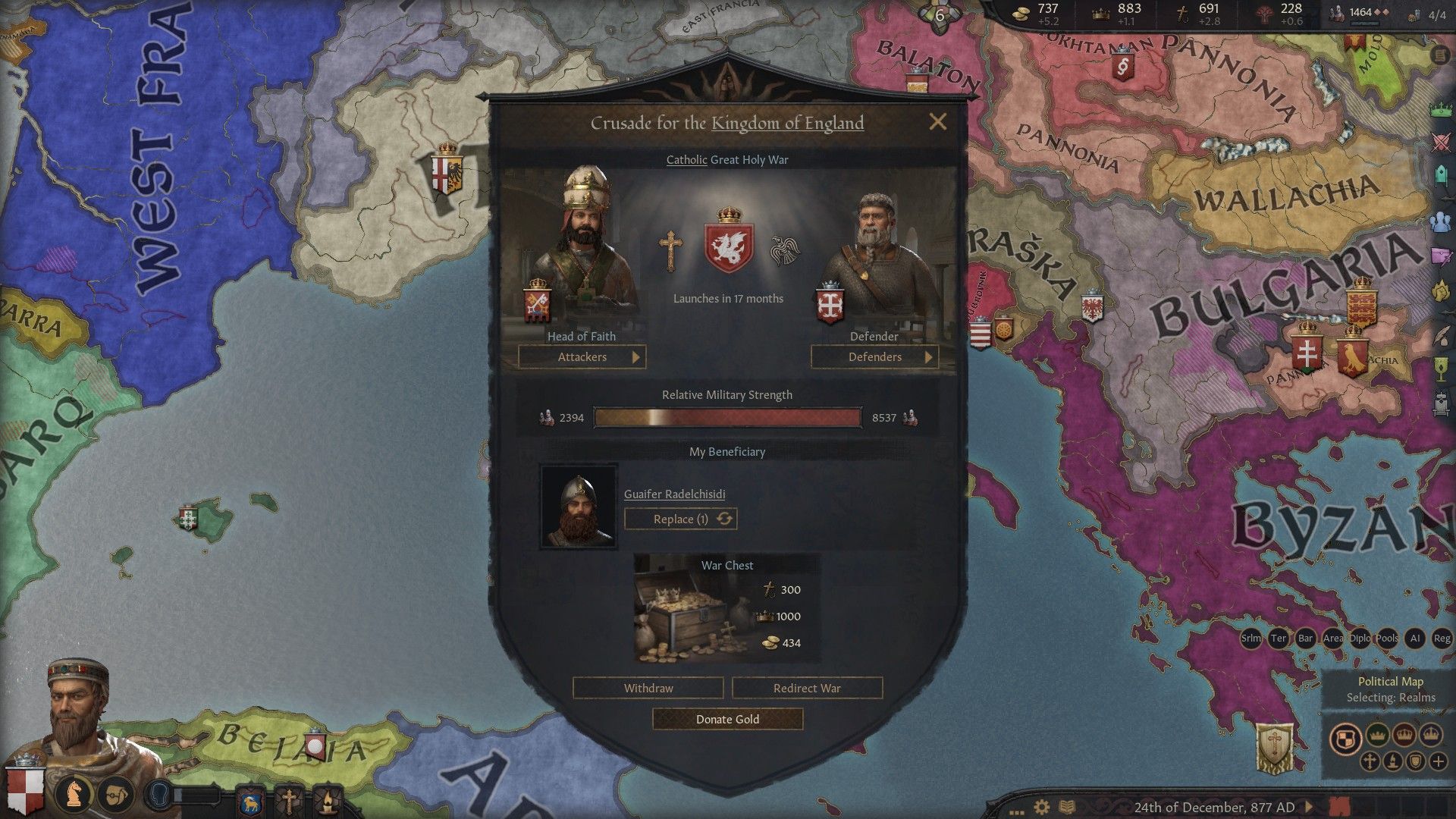
The Ultimate Guide to Crusader Kings 3's Epic Great Holy Wars

CK3's Great Holy Wars are a unique type of warfare that differ from traditional wars Learn how to access and conduct these epic battles for ultimate power and glory
The inclusion of the word "crusade" in the title of Crusader Kings 3 means that Paradox Interactive had to ensure that crusades were a unique and integral part of the game. With the ability for players to mix and match Tenets to create their own Faiths, the developers have introduced the concept of a "Great Holy War" - a type of war that operates differently from any other in the game. Great Holy Wars come with numerous restrictions, including who can call them, when they can be called and who can benefit from them. Despite these limitations, they are likely to be the most significant conflicts players will encounter throughout the game.
How to Access Great Holy Wars
Faith is the foundation for embarking on a Crusade or any Great Holy War. However, not all Faiths from any Religious Family can call for such a massive undertaking. The Tenets of the Faith play a vital role in determining if it is eligible for a Great Holy War. The right Tenets are necessary and must be met to call for a Great Holy War.
Tenet | Religions with Access |
|---|---|
Armed Pilgrimages | Christianity Judaism |
Struggle and Submission | Islam Dualism |
Warmonger | All Pagan Religions All Eastern Religions Milete |
Only Catholicism possesses Armed Pilgrimages in the base game, whereas other faiths, such as Ash'arism, Maturidism, Muwalladism, Almohadism, Mu'tazilism (Sunni Islam Faiths), Isma'ilism, Nizarism, Zayidism, Ikhtilafism, Hafizi (Shia Islam), Azraqism, and Sufrism (Muhakkima Islam), have Struggle and Submission. Tengriism and Asatru (Norse) have Warmonger, but they lack the necessary traits to launch a Great Holy War. If players desire to play a ruler of a different faith with access to Great Holy Wars, they must either create their own faith or utilize a mod that adds such faiths to the game.
Additionally, an active Head of Faith is required to declare a Great Holy War. This Head of Faith can either be a Spiritual (theocratic NPC) or Temporal (player ruler). The way a Great Holy War operates differs depending on the type of Head of Faith, which will be discussed below. Moreover, the Faith must be Organized, meaning that Asatru and Tengriism must fulfill this requirement to gain access to Great Holy Wars.
To delay the start of Crusades in the 867 starting date, Great Holy Wars must be unlocked first. This requires the Faith to have a presence in at least 35 counties across the map, a Fervor level of 65 or higher, and an active Head of Faith. Only then can Christian Crusades begin under specific circumstances.
The year is 900 or later and the highest ruler of Cologne, Halberstadt, Paris, Toulouse, or Venaissin is not a Christian. Similarly, if it is at least 1000, the Byzantine emperor or the highest ruler of Constantinople, Ankyra, Athens, or Corinth is not a Christian. Furthermore, if the year is 1095 or later, the highest ruler of Jerusalem is not a Christian. It is also noteworthy that the highest ruler of Rome is never a Christian, regardless of the date. These factors can trigger Islamic Jihads.
Crusades have unlocked and a non-Muslim controls a county that a Muslim Head of Faith considers a holy site.
The Great Holy Wars of any religion can unlock when:
In the early 900s, two holy sites were under the control of a hostile or malevolent faith, while both Crusades and Jihads had been initiated. Fast forward to the year 1100, and one holy site remained under the control of the same faith. Though Great Holy Wars do not always unlock immediately after meeting the necessary conditions, they typically unlock within a few years. Additionally, if one religion gains the ability to declare Great Holy Wars, other religions must wait a minimum of 10 years before unlocking the same capability.
If a ruler of Hindu, Jain or Buddhist faith manages to unify India and chooses the "Become Chakravarti" decision, their faith will be granted the "Rightful Rulers of the World" doctrine. This unique doctrine enables the Head of Faith to call for Great Holy Wars, regardless of the presence of Dharmic Pacifism as one of their Tenets.
How to Conduct a Great Holy War
Calling for a Great Holy War comes with several restrictions. Firstly, there is a 30-year cooldown timer that starts when the previous Great Holy War ends. Secondly, the Faith's Fervor must be at least 75. Lastly, the Head of Faith must choose a kingdom title that is partly or entirely ruled by characters of a hostile or evil Faith. While NPC Heads of Faith typically target kingdoms containing holy sites, any kingdom can be chosen as a target.
In times of a Great Holy War, the conventional expectations of vassals abstaining from their rulers' wars are disregarded. Both vassals and their rulers can participate in the same war, resulting in tumultuous and immense army groups that traverse the entire kingdom. This also extends to defenders, and like other holy wars, rulers of the same faith from neighboring territories (of any level) can offer assistance in defense. To add to this, a Great Holy War doesn't center on just one ruler, but instead targets all rulers of an enemy or malevolent faith who possess land in the de jure kingdom. This implies that multiple faiths can be declared upon simultaneously during a Great Holy War.
For a Temporal Head of Faith, a Great Holy War can be declared at any time against a specific kingdom title in the game, known as a "directed" Great Holy War. However, if the Head of Faith is Spiritual, they will initiate an "undirected" Great Holy War. This alerts all rulers of the same Faith to the upcoming conflict and invites them to contribute by either joining the war effort or providing financial support. Those who choose to provide financial support will receive a lump sum of Piety. Following this, a timer begins and the faithful have a year and a half to prepare for battle.
Players have the ability to alter the course of the war through a special in-game menu accessible via a new icon in the lower-right corner of the screen. This menu displays vital information such as the leading sides, the relative strength of each faction, and a War Chest filled with resources. If players choose to donate gold, it will be distributed among the winning combatants based on their contribution to the War Score. Additionally, players can join or withdraw from the war, donate gold, and redirect the war by selecting a new kingdom and paying a certain amount of Piety. The cost for redirection increases with each subsequent attempt, but NPC rulers rarely opt to redirect Great Holy Wars.
During a Great Holy War, players have the option to select a beneficiary who is a member of their dynasty and unlanded, but not one of their heirs. If the attackers are victorious, the beneficiary will receive titles in the conquered land based on the sponsor's contributions. The most significant contributor will grant their beneficiary the kingdom title, unless the kingdom already has a claimant of the right faith. In the case of a directed Great Holy War, the ruler who contributes the most will receive the kingdom title and become independent if they were not already an emperor.
If the attackers are already at war with another major power, the Head of Faith will not call a Great Holy War. Additionally, if the Head of Faith has a truce with the targeted realm, the war will not be declared. Finally, if the Head of Faith is imprisoned or incapable, the Great Holy War cannot be declared.
In a Great Holy War, victory is the only option as White Peace is not on the table. Each character who participates in the conflict, even as a knight in an army, will be granted the esteemed Warrior of the Faith trait. However, if they choose to leave the kingdom before the war concludes, they will forfeit the trait and suffer a loss of Prestige. Interestingly, the capture of the enemy ruler or their heirs does not affect the War Score. As players are not the ones initiating the war, they can prepare their armies in advance for the moment a Great Holy War is declared. NPC armies display heightened aggression during these wars. Importantly, Temporal Heads of Faith are not subject to the Offensive War Opinion penalty during Great Holy Wars. Regardless of the outcome, the attacking Faith experiences a drop in Fervor while the Fervor of all defending Faiths increases if they are unsuccessful. In the event that the player's beneficiary acquires the kingdom title in a Great Holy War, the game provides the option to switch to the beneficiary rather than sticking with the current ruler. Crusader Kings 3 is now available on PC, PS5, and Xbox Series X/S.













